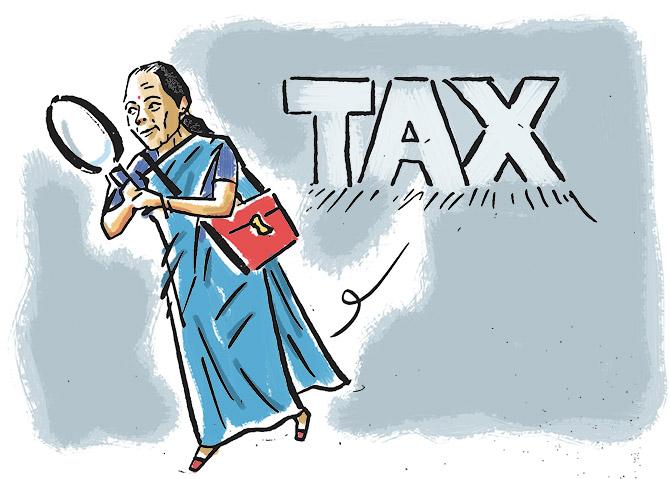FinMin also exploring the option of rationalising capital gains tax rates.
Arup Roychoudhury reports.

The Centre is considering a gradual phasing out of certain direct tax exemptions meant for corporate and personal tax payers.
This is among the tax proposals being discussed for the upcoming Union Budget 2022-23.
A top policymaker told Business Standard that according to the government’s internal assessment, the percentage of corporates and individuals shifting to the new exemption-less tax regime has been very encouraging, and the Budget-makers expect many more to make the switch in the coming years.
The person also said the finance ministry is exploring the option of rationalising the capital gains tax rates.
“We are very encouraged by what we have seen so far.
"The shift to the new rates will happen gradually, as some companies and individuals would like to hold on to the exemptions they are availing.
"But as more and more people shift to the new tax brackets, we will slowly phase out some exemptions,” the official said.
In September 2019, Finance Minister Nirmala Sitharaman had announced new corporate tax rates.
"The base rate was reduced to 22 per cent from 30 per cent for corporates foregoing various exemptions.
"The rate for new manufacturing companies was reduced to 15 per cent from 25 per cent.
Later, in the 2020-21 Union Budget, just before the Covid-19 pandemic struck the country, Sitharaman announced reduced personal income tax rates for those willing to forego certain exemptions and deductions.
For the Rs 5 lakh-Rs 7.5 lakh annual income bracket, the rate was reduced to 10 per cent from 20 per cent.
It was cut to 15 per cent from 20 per cent for the Rs 7.5 lakh-Rs 10 lakh bracket.
There were similar tax rate cuts for salaries up to Rs 15 lakh.
However, rates remained unchanged at 30 per cent for those above Rs 15 lakh per annum.
Since the new corporate tax regime came before the changes in the personal income tax rates, the exemptions for the former category will be the first to go, the official said.
The person stressed that any decision to phase out exemptions will be a considered one.
The upcoming Budget, which Sitharaman will present on February 1, may announce a road map for the gradual phasing out of these exemptions.
“I feel there are certain exemptions that shouldn’t be phased out and should continue.
"An example is 80JJAA, which incentivises companies to hire new workers.
"So some exemptions will continue.
"But traditionally, many types of tax holidays have yielded so much litigation and so much controversy, that putting them to bed is probably a good idea,” said Rohinton Sidhwa, direct tax partner with Deloitte India.
On capital gains tax, many experts have opined that one way of addressing anomalies in the capital gains tax rate is through a more rational assessment of which investments should attract short-term capital gains tax (STCG) and which should attract long-term capital gains tax (LTCG).
“We have received many proposals on rationalising capital gains tax and are mulling over it.
"Nothing has been decided yet,” the official quoted above said.
The rate of capital gains tax differs for different asset classes.
For example, equity and equity mutual funds attract STCG of 15 per cent, and LTCG of 10 per cent for gains above Rs 1 lakh.
STCG on most bond investments is at the tax slab the investor comes under. However, LTCG is either 10 or 20 per cent, depending on whether it is a listed or unlisted bond or a debt mutual fund. For real estate, LTCG is at 20 per cent.












 © 2025
© 2025